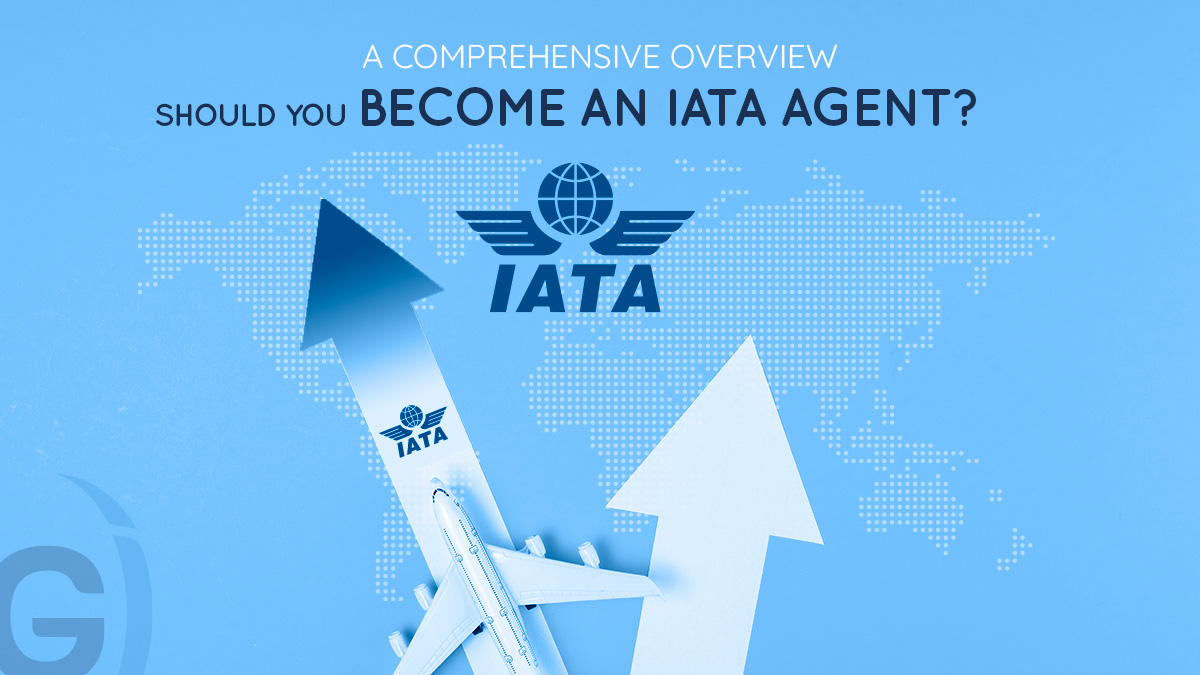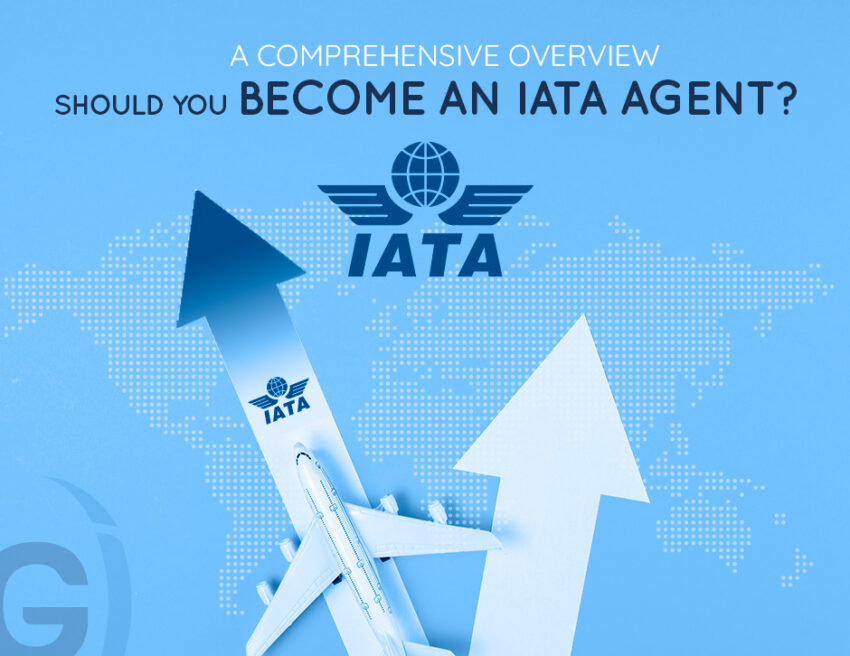Deciding whether to pursue International Air Transport Association (IATA) accreditation is a significant consideration for air freight companies. While IATA offers substantial benefits to accredited agents, the process involves considerable commitment and resources. This blog explores the advantages and disadvantages of becoming an IATA agent, helping freight forwarders evaluate whether this accreditation fits their business strategy.
What is IATA and How it Benefits the Air Freight Companies?
The International Air Transport Association (IATA) is a global trade association representing around 290 airlines, accounting for 82% of worldwide air traffic. It plays a critical role in promoting safe, secure, and efficient airline operations. For air freight companies, IATA accreditation signifies adherence to international standards and best practices, enhancing both operational efficiency and industry reputation.
To become an IATA agent, a company must meet strict criteria, including financial stability and regulatory compliance. Accredited agents also gain access to IATA’s extensive network, tools, and resources, which can elevate their operational capabilities and industry standing.

Join us today!
The Benefits of IATA Accreditation
Enhanced Credibility
One of the most significant advantages of IATA accreditation is the credibility it provides. Being associated with a globally recognized organization can build trust with clients and partners, leading to more business opportunities and long-term relationships.
Access to a Global Airline Network
IATA agents gain privileged access to an extensive network of airlines, enabling them to offer more comprehensive services to clients. This access can also lead to competitive pricing and a broader range of service options, enhancing their appeal in the market.
Streamlined Operations
IATA provides tools and resources that streamline operations, such as standardized documentation, industry-specific software, and various training programs. These tools help companies optimize their processes and improve operational efficiency.
Financial Protections
Through IATA’s Cargo Account Settlement Systems (CASS), accredited agents benefit from a simplified billing and settlement process, ensuring accurate and timely payments. This financial security is a valuable asset for companies managing international transactions.
Training and Development
IATA offers extensive training programs that cover various aspects of the air freight industry, from regulatory compliance to operational best practices. These programs help companies keep their staff well-trained, improving overall service quality and operational competence.
The Drawbacks of IATA Accreditation
High Costs
The cost of obtaining and maintaining IATA accreditation is a major drawback, particularly for small and medium-sized enterprises. From application fees to ongoing compliance costs, the financial investment can be considerable. Businesses must assess whether these costs are justifiable given their potential benefits.
Strict Compliance Requirements
Becoming an IATA agent requires meeting stringent operational and regulatory standards, which can be both time-consuming and resource-intensive. Maintaining accreditation involves continuous adherence to these regulations, demanding ongoing commitment from the company.
Limited Flexibility
IATA’s rules and standards may not align with every company’s business model. Some air freight companies may find these regulations restrictive, limiting their ability to operate flexibly or innovate within their existing processes.
Competitive Pressure
While IATA accreditation can offer a competitive edge, it also places companies in direct competition with other accredited agents. Smaller companies, in particular, may find it challenging to compete with larger, well-established players in the industry.
An Alternative Path: Freight Forwarding Networks
For smaller air freight companies, joining a freight forwarding network might offer a more viable alternative to IATA accreditation. Networks like Globalia Logistics Network unite vetted and reliable agents across 208 cities worldwide, providing incoming project opportunities year-round. By partnering with trusted agents, companies can grow their business, lower operational costs, and compete effectively with larger logistics firms—without the high costs and stringent requirements of IATA.
Making the Decision
The decision to pursue IATA accreditation should align with your company’s long-term goals. Conducting a thorough cost-benefit analysis is essential. Companies should weigh the advantages—such as increased credibility and access to a global airline network—against the costs and compliance requirements. Additionally, assessing whether your clients would benefit from the services made available through IATA accreditation is crucial in determining if the investment will pay off.
Finally, companies must evaluate their operational readiness to meet IATA’s stringent standards. Only those with the necessary resources and infrastructure should pursue this path.
Conclusion
While becoming an IATA agent offers several advantages—ranging from enhanced credibility to access to a global airline network—it also comes with significant costs and operational commitments. Air freight companies must carefully evaluate these factors to decide whether IATA accreditation aligns with their business objectives. Alternatively, smaller companies may find membership in a reliable freight forwarding network a more flexible and cost-effective solution. By making an informed choice, air freight forwarders can set themselves up for success in the competitive logistics landscape.


